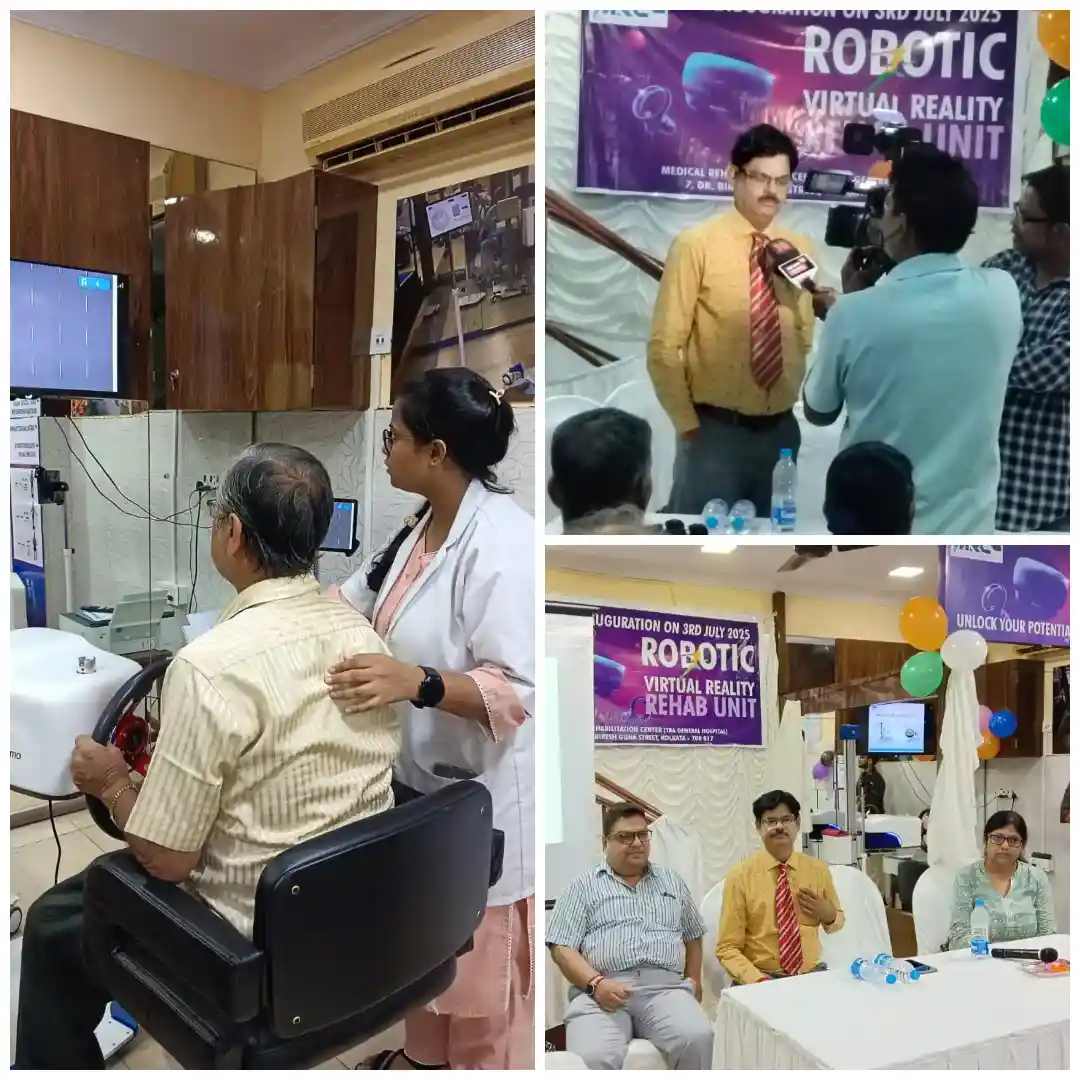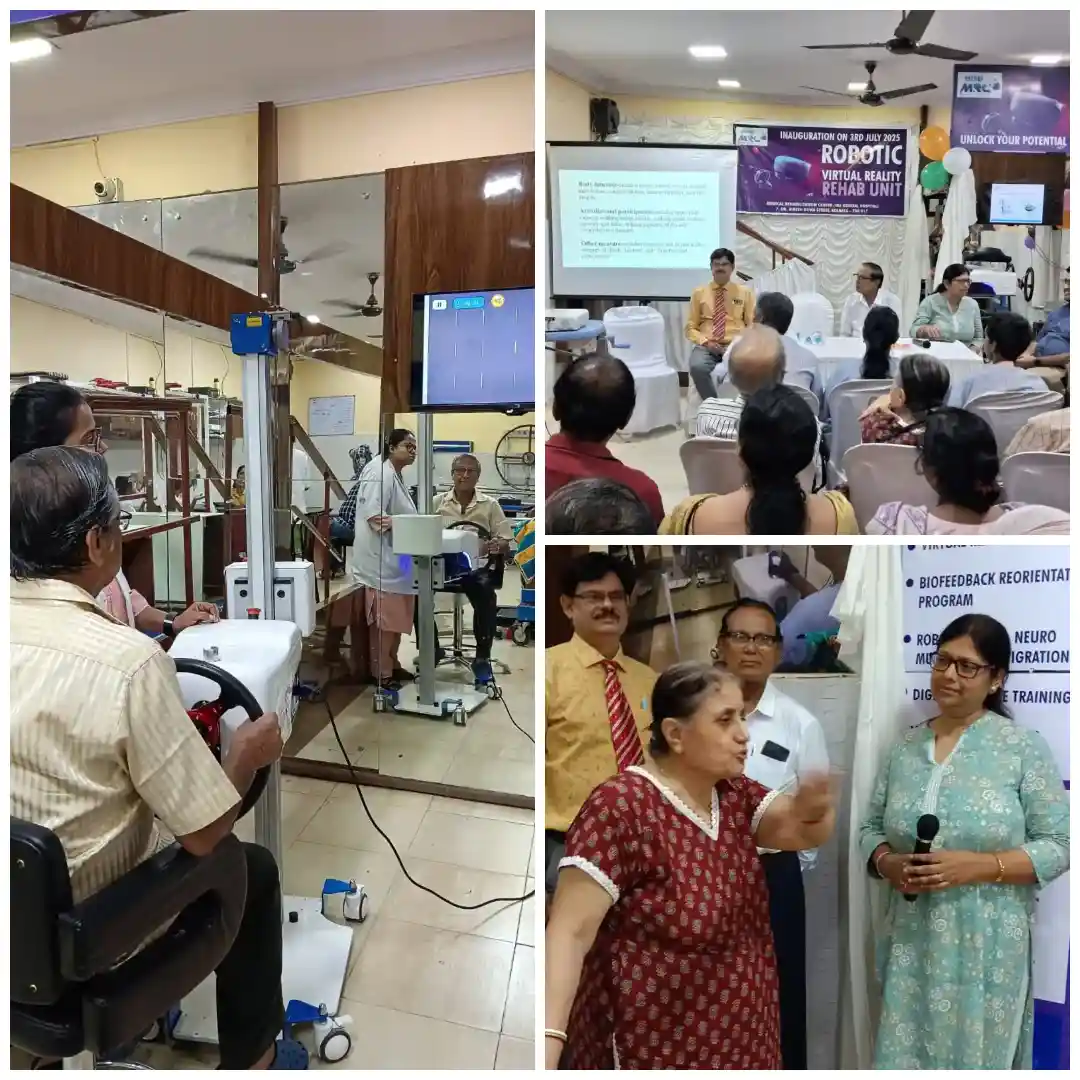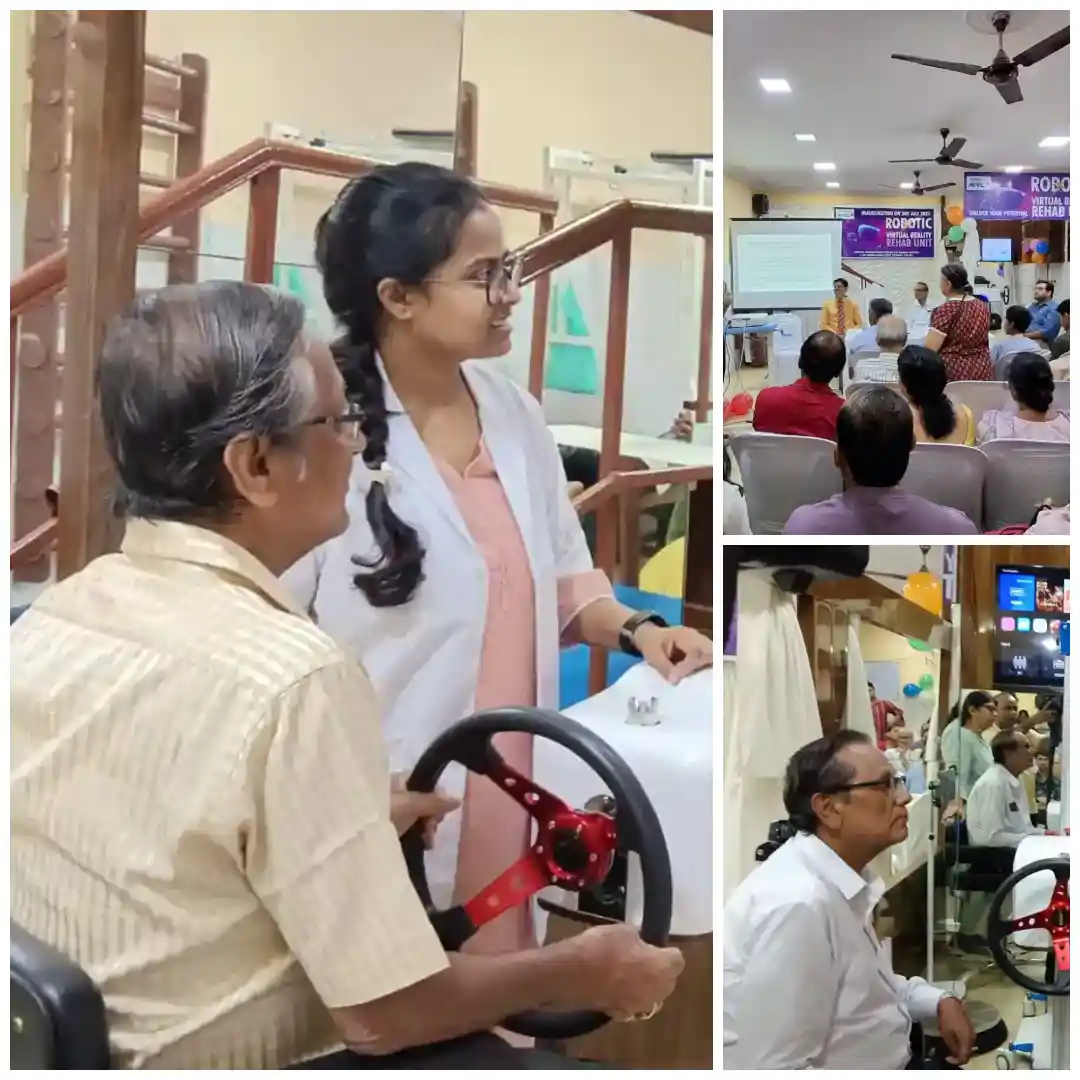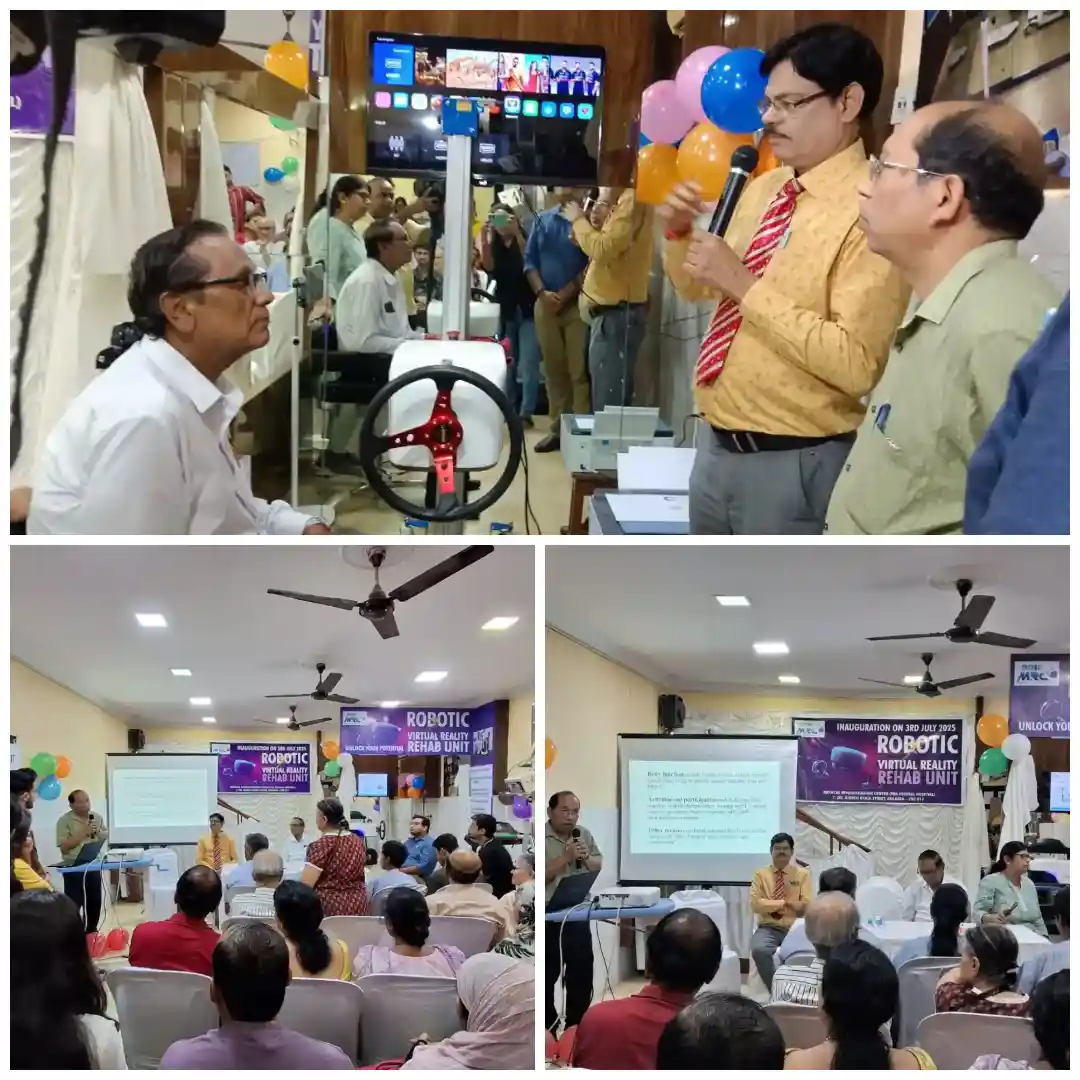
A Milestone Moment in Indian Rehab Healthcare.
In July 2025, the Medical Rehabilitation Center (MRC) marked its 25th year of unwavering service and innovation in the field of rehabilitation care. The occasion was not just a celebration—it was a bold step forward.
Under the leadership of Dr. Mouli Madhab Ghatak and the team, MRC officially inaugurated its Robotic & Virtual Reality (VR) Rehab Unit, a first-of-its-kind technological advancement in the region’s private rehabilitation sector. This initiative is a significant leap that promises to redefine recovery journeys for patients with neurological, spinal, and movement disorders.
Founded in 2000, MRC was born out of a simple yet powerful mission—to bring the promise of recovery to those told they had no options left. Whether it was stroke survivors, children with cerebral palsy, or individuals suffering from paralysis, MRC stood as a ray of hope.
Over the years, it has transformed from a humble rehabilitation center into one of the most trusted names in pain management and paralysis treatment in Eastern India.
With a holistic team and integrated services ranging from physiotherapy, occupational therapy, speech therapy, and diagnostic rehab, MRC has consistently focused on restoring dignity and mobility to patients once considered beyond recovery.
The new Robotic & Virtual Reality Rehab Unit is not just about machines—it’s about empowering people with new possibilities.
This high-tech setup enhances traditional rehabilitation with the precision of robotics and the immersive capabilities of virtual environments. It enables real-time statistical feedback, gamified balance training, and personalized therapy paths.
Aimed at:


India still lacks sufficient access to advanced rehabilitation care, especially in the eastern corridor. With this cutting-edge addition, MRC is once again stepping ahead, showing how private sector healthcare can lead innovation with empathy and excellence.
By adopting robotic rehab, MRC is not only improving treatment quality but also reducing recovery timelines and opening doors for patients who had previously hit a plateau with conventional methods.
Speaking at the event, Dr. Mouli Madhab Ghatak, MBBS, MD Cal, Incharge & Chief Consultant of Medical Rehab Center, shared his gratitude:
“It is our greatest joy to celebrate 25 years with a meaningful step forward. This Robotic & VR Rehab Unit is our commitment to the future—where recovery is not just a hope, but a high-tech reality.”
The event was attended by medical professionals, former patients, healthcare partners, and well-wishers who have been a part of MRC’s incredible journey since 2000.
While celebrating two and a half decades of resilience, trust, and healing, the launch of the Robotic & VR Unit marks the beginning of a new chapter—one that promises smarter, faster, and more effective rehab solutions for generations to come.
From manual therapies to machine-driven precision, MRC’s journey is a testament to what visionary leadership and compassionate care can accomplish.
As MRC moves ahead, one thing is certain: the future of rehabilitation in Eastern India just got smarter. With Robotic & Virtual Reality Rehab, Kolkata is now home to next-gen recovery with technology. And at the heart of it remains the same MRC spirit: to help people walk again, hope again, and live again.
